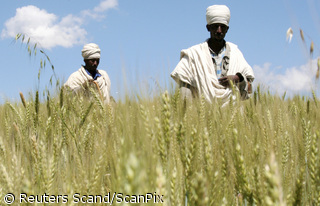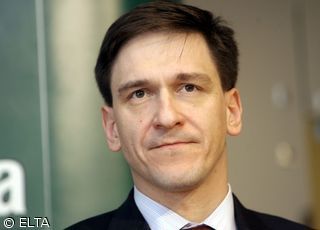Working group proposes carrots and sticks to encourage early graduation
Published:
8 January 2004 y., Thursday
A working group at the Ministry of Education wants to impose limits on the time students spend on university studies. Under the plan, which would take effect in 2005, the normal amount of time taken to complete studies could be exceeded by a maximum of two years. In most cases this would place a seven-year limit for a higher, master's-level degree.
The working group also wants to require a personal study plan for each student to prevent students from taking on too diverse an array of courses. Tuition would continue to be free for full-time students studying for a degree. However, mandatory fees are planned for supplementary studies undertaken when a person already is at work.
The working group is also calling for a number of other ways to keep students to their schedule, including making more efficient use of time and trimming the content of the subject matter. The academic year would also be longer: the autumn term would begin on the first of September and end on December 15. The spring term would be extended to the end of May.
The proposals of the working group are part of broader government plans to extend the amount of time that Finns stay at work.
Šaltinis:
helsinki-hs.net
Copying, publishing, announcing any information from the News.lt portal without written permission of News.lt editorial office is prohibited.
The most popular articles

The European Commission announced today the award of three of the six contracts for the procurement of Galileo’s initial operational capability.
more »
 Plans to step up EU funding to develop innovative low-carbon technologies to help cut greenhouse gas emissions by 20% by 2020 were welcomed in a resolution approved by Parliament on Thursday.
more »
Plans to step up EU funding to develop innovative low-carbon technologies to help cut greenhouse gas emissions by 20% by 2020 were welcomed in a resolution approved by Parliament on Thursday.
more »
 A report presented today by the European Commission shows that countries still face challenges in modernising higher education, a decade after the launch of a blueprint for reform known as the 'Bologna Process'.
more »
A report presented today by the European Commission shows that countries still face challenges in modernising higher education, a decade after the launch of a blueprint for reform known as the 'Bologna Process'.
more »
 The nominees for the European Inventor Award 2010 include inventors of pioneering innovations in a wide range of fields, from the conservation of drinking water to the synthesis of football-shaped carbon molecules or "fullerenes", and from cancer treatments to digital data encryption.
more »
The nominees for the European Inventor Award 2010 include inventors of pioneering innovations in a wide range of fields, from the conservation of drinking water to the synthesis of football-shaped carbon molecules or "fullerenes", and from cancer treatments to digital data encryption.
more »
 Every year over 180,000 students across Europe study in the Erasmus University exchange programme.
more »
Every year over 180,000 students across Europe study in the Erasmus University exchange programme.
more »
 On the margins of the annual Africa Carbon Forum, a new initiative to bring environmental and financial benefits to local communities in the impoverished highlands of Ethiopia was announced here today.
more »
On the margins of the annual Africa Carbon Forum, a new initiative to bring environmental and financial benefits to local communities in the impoverished highlands of Ethiopia was announced here today.
more »
 Graduate unemployment is reaching unprecedented levels, partly due to the economic crisis, but there are other issues at play.
more »
Graduate unemployment is reaching unprecedented levels, partly due to the economic crisis, but there are other issues at play.
more »
 A new agency has been launched with a mandate to boost the level of innovation in Lithuania and bring it in line with the European Union average.
more »
A new agency has been launched with a mandate to boost the level of innovation in Lithuania and bring it in line with the European Union average.
more »
 After lots were drawn, ten winners of Danske Bankas scholarships and one winner of an iPod shuffle player were established.
more »
After lots were drawn, ten winners of Danske Bankas scholarships and one winner of an iPod shuffle player were established.
more »
 The Spanish Ministry of Defence will offer the military cadets and midshipmen of European Union countries the chance to study an EU course on the Common Security and Defence Policy (CSDP) at the Spanish military academies of the three branches of the armed forces as part of the educational exchange programme known as the military ERASMUS.
more »
The Spanish Ministry of Defence will offer the military cadets and midshipmen of European Union countries the chance to study an EU course on the Common Security and Defence Policy (CSDP) at the Spanish military academies of the three branches of the armed forces as part of the educational exchange programme known as the military ERASMUS.
more »
 The first solar cell production line was opened in Vilnius on 26 January.
more »
The first solar cell production line was opened in Vilnius on 26 January.
more »